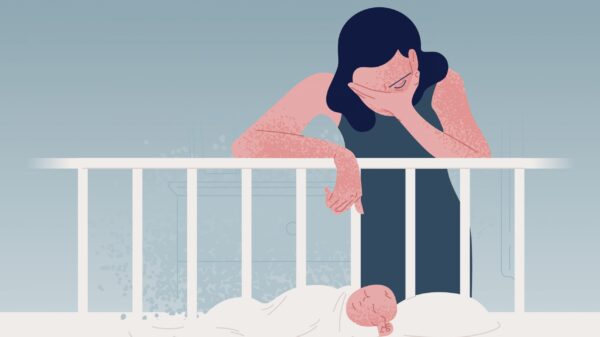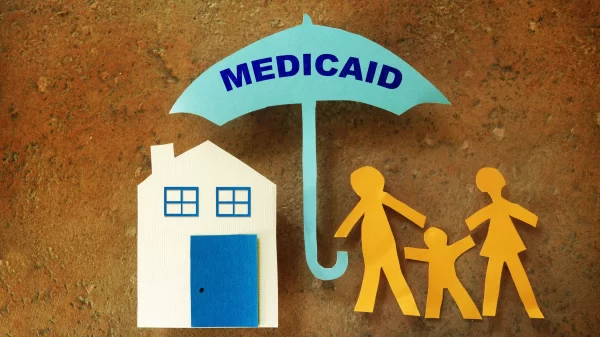By Bill Britt
Alabama Political Reporter
HUNTSVILLE—Madison County is the heart of Alabama’s technological center at the heart of the county is Huntsville Hospital Health Systems.
Huntsville Hospital Health Systems is only riveled in size by the UAB Health Systems, leading this massive healthcare provider is CEO David Spillers.
“At our core hospital in Madison we see around, 50,000 in-patients a year and 160,000 in the emergency department,” says Spillers. Of that number, Medicaid recipients account for approximately 30 percent of those patients seen in the ER and around 15 percent of the hospitals in-patients received treatment though Medicaid.
“We are the third largest provider of healthcare to Medicaid patients,” said Spillers. While other hospitals may see a larger percentage of Medicaid recipients, Huntsville Hospital sees more because of the “sheer volume.”
Huntsville Hospital, employs over 10,000 people and is only exceeded in personnel by Redstone Arsenal.
Spillers says that Madison has seen great growth due to BRAC and other industry, “When families are looking to relocate the first thing they want to know is the quality of the schools the second is hospitals.”
Spillers who spent 18 years in healthcare management in Ashville, North Carolina, before choosing to move to Huntsville says he loves Alabama, but wishes it paid better for healthcare services.
It is often pointed out that Alabama hospitals are the most efficiently run in the country, to that Spillers immediately replies, “And the worse paid.” He further explains, “When you are paid the least you have to be efficient if you want to stay in business, you figure out how to get real efficient.”
When Spillers came to Huntsville six years ago he says he did some calculations and found that if Huntsville Hospital were paid according to North Carolina standards under Medicaid, Medicare and private insurers, the hospital would have realized $65 million more in revenue in that one year.
“We are historically a low tax state, states with more money tended to spend more on social services, we don’t have the tax base so the money is not there,” said Spillers. He continues, “Some will tell you that the reason we are consistently ranked at the bottom with regards to the health of our citizens, is because we don’t spend the money on their healthcare.”
Few would question the correlation between money provided for quality care and the health of a population, through access, education and treatment.
This all becomes more ominous with the looming Constitutional Amendment vote on September 18. That vote will determine if the state can fund even its meager Medicaid program and its overcrowded prison system.
“The biggest problem is there is no plan B, there is only one options right now,” says Spillers. “So, if this plan fails and we are looking at a 20 percent across the board proration. In our area, the ones I am responsible for, it means I have to find an additional $15 to $20 million dollars.”
Spillers says the only way to meet the challenges—that would be imposed by not funding Medicaid through the constitutional amendment— is to “look at what programs can be cut and what services will no longer be offered.”
He does not mean services only offered to Medicaid recipients but service offered to all patients.
“There is no way to see 15 or 20 percent taken away and keep doing what we are doing now,” states Spillers. “We already lose money on the services we provide to those on Medicaid.”
Spillers points out that for every dollar they spend on Medicaid patients that the hospital only receives around 75 cents back.
“Some people say, ‘just collect 65 cents and you will be okay,’ that is not possible,” says Spillers.
As the Medicaid story has unfolded it has become clear that the state is currently in the same dire fiscal shape it was ten years ago as to Medicaid and prison funding. Even with ten years to address the problem facing those chronic problems little has been accomplished toward better funding these programs.
Spillers says there comes a point when it is not possible to cut any more and there must be some relief on the revenue side.
“I am a republican and hate taxes,” but he says there may be a reason to look at cigarettes, alcohol, soft drinks, firearms and other things. “Many of which lead to overcrowded emergency departments every weekend.” As a way of putting money back into healthcare.
Spillers says that the Huntsville Hospital Health Systems is currently in a pilot program using “clinical case managers assigned to a Medicaid patients who have a high utilization of Medicaid.”
According to the Alabama’s Medicaid agency the, “new, locally-led approach to how Medicaid recipients receive medical care has produced savings for state taxpayers and improved care for patients.”
In fact the Alabama Medicaid Agency was one of five state and local government organizations honored May 10 as the recipient of a 2012 Innovative Alabama Governments Award from Auburn Montgomery Center for Government and Public Affairs and the Center for Advanced Technologies. The awards honor select recipients for their use of new and innovative methods to help Alabama state, county, and municipal government agencies reach new levels of efficiency and responsiveness.
“This program allows us to focus on the 10 or 20 percent of the population that is using 80 percent of the Medicaid services and significantly reduce their use of health facilities,” said Spillers. “They have better outcomes and it saves money.” But he also warns, “There is only so much money that can be squeezed out of these programs but it is a good start.”
In part two, Mr. Spillers talks about underlying problems and solutions that can lead to better healthcare and savings.





















































